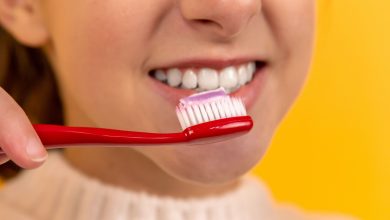Are Dental Veneers Safe?

Yes, dental veneers are safe and considered a common cosmetic dental procedure, providing a natural-looking solution for various dental concerns. However, it is important to consult with a qualified dentist to ensure suitability and discuss any potential risks or complications.
Dental veneers have gained significant popularity as an effective cosmetic dental treatment for improving the appearance of teeth. They are thin shells made from porcelain or resin, custom-made to fit over the front surface of the teeth, concealing imperfections and enhancing aesthetics.
Whether it’s a chipped tooth, stained enamel, or gaps between teeth, dental veneers offer a solution that can transform smiles. While the question of safety arises, dental veneers are generally considered safe. This article will explore the safety aspects and potential risks associated with dental veneers, providing insights to help you make an informed decision about this procedure.
Understanding Dental Veneers
Dental veneers are a popular cosmetic dentistry option that can transform your smile. Made of thin shells of porcelain, veneers are custom-made to fit over the front surface of your teeth, improving their appearance. They are a safe and long-lasting solution for a variety of dental issues.
What Are Dental Veneers?
Dental veneers are wafer-thin, tooth-colored shells that are permanently bonded to the front surface of your teeth. They are designed to match the color, shape, and size of your natural teeth, giving you a flawless, natural-looking smile.
How Do Dental Veneers Work?
To get dental veneers, your dentist will first prepare your teeth by removing a small amount of enamel from the front surface. This ensures a proper fit. Then, a mold or impression of your teeth is taken and sent to a dental laboratory, where your custom veneers are created. Once ready, your dentist will bond the veneers to your teeth using a special adhesive, giving you an instant smile makeover.
Benefits Of Dental Veneers
| Enhanced aesthetics: | Veneers can improve the color, shape, and size of your teeth, giving you a beautiful smile. |
| Fixing dental imperfections: | Veneers can mask various dental flaws such as chips, cracks, stains, or gaps between teeth. |
| Durable and long-lasting: | Dental veneers are made of sturdy materials and can last for 10-15 years with proper care. |
| Minimally invasive: | The tooth preparation required for veneers is minimal compared to other treatments. |
Dental veneers are a safe, effective, and versatile option to enhance the appearance of your teeth. Consult with your dentist to determine if veneers are the right solution for you.
Safety Concerns With Dental Veneers
Are dental veneers a safe option? Dental veneers are generally considered to be a safe and effective cosmetic dental treatment. However, like any dental procedure, there are potential risks and side effects to be aware of. One possible risk is tooth sensitivity. Some individuals may experience increased sensitivity to hot and cold temperatures after getting veneers. This sensitivity usually subsides over time, but it can be uncomfortable in the initial stages. Another potential side effect is gum irritation. Since veneers require a small amount of enamel to be removed from the teeth, the gums may become irritated during the preparation process. This can cause temporary discomfort and inflammation. Additionally, there is a small risk of veneer breakage or chipping, especially if excessive force is applied to the teeth. However, with proper care and maintenance, veneers can last for many years without any issues. Overall, dental veneers are considered safe when performed by a qualified and experienced dentist. It is important to discuss any concerns or potential risks with your dentist to ensure that veneers are the right choice for you.| Risks and Side Effects |
|---|
| Tooth sensitivity |
| Gum irritation |
| Veneer breakage or chipping |
Factors To Consider For Safety
Choosing a qualified and experienced dentist is crucial when considering the safety of dental veneers. An experienced dentist will have the necessary knowledge and skills to perform the procedure correctly, minimizing any potential risks.
Assessing your oral health before getting veneers is also an important factor for safety. Your dentist should thoroughly evaluate your teeth and gums to ensure they are in good condition and suitable for veneers.
The quality of materials used for the veneers is another aspect to consider for safety. High-quality materials, such as porcelain, are durable and biocompatible, reducing the risk of allergic reactions or complications.
Overall, with proper care and maintenance, dental veneers can be a safe and effective solution for improving the appearance of your smile. It’s essential to choose a reputable dentist and discuss any concerns or questions you may have before undergoing the procedure.
Alternatives To Dental Veneers
Dental veneers are a popular choice for enhancing the appearance of teeth, but if you are looking for alternative options, dental bonding can be a safe and effective choice. Dental bonding involves applying a tooth-colored resin to the surface of the tooth and shaping it to improve the tooth’s shape or color.
Invisalign is another alternative to veneers, especially for correcting misaligned teeth. This treatment uses clear aligners to gradually align the teeth without the need for traditional braces.
Teeth whitening is also a common alternative for enhancing the smile. There are various options available, ranging from over-the-counter whitening kits to professional in-office treatments. Teeth whitening can help remove stains and brighten your smile.
Maintaining Dental Veneers For Longevity
Are dental veneers safe? That is a common question among people considering this cosmetic dental procedure. The good news is that when properly cared for, dental veneers can last for many years while maintaining their appearance. The key to ensuring the longevity of dental veneers lies in practicing proper oral hygiene. This includes regular brushing and flossing to remove plaque and prevent tooth decay. Additionally, it is crucial to schedule regular dental check-ups and cleanings to identify any issues early on and address them accordingly.
Furthermore, it is important to avoid habits that can potentially damage veneers. For instance, biting down on hard objects or using teeth as tools can cause veneers to chip or crack. It is also advisable to refrain from chewing on ice or biting into extremely hard foods that may compromise the integrity of dental veneers. By following these guidelines and taking proper care of your dental veneers, you can enjoy a beautiful and healthy smile for years to come.

Credit: rollinghillsdentistry.com
Frequently Asked Questions Of Are Dental Veneers Safe?
Is There A Downside To Veneers?
Yes, there can be a downside to veneers. They are irreversible, may cause tooth sensitivity, and can be expensive. In some cases, veneers may need replacement or repair over time. Additionally, the process may require removal of some tooth enamel.
It’s important to consult with a dentist before considering veneers.
What Happens To Teeth Under Veneers?
Veneers are thin shells placed on teeth to enhance their appearance. The natural teeth beneath the veneers are not affected, but some enamel may be removed before placing the veneers. It’s important to maintain good oral hygiene to ensure the longevity of the veneers.
Can You Go Back To Natural Teeth After Veneers?
Yes, you can go back to natural teeth after having veneers. However, the process may involve removal of the veneers, which can be irreversible. It’s important to consult with your dentist to discuss the best course of action for your specific situation.
How Long Do Veneers Last?
Veneers typically last between 10 and 15 years.
Conclusion
After examining the evidence, it is clear that dental veneers are a safe and effective treatment option for many individuals. With proper care and maintenance, veneers can provide long-lasting results and restore confidence in one’s smile. However, it is important to consult with a qualified dentist to determine if veneers are the right choice for your specific needs.
Remember, prioritizing oral health and following comprehensive dental care practices will contribute to the longevity and safety of your veneers.




